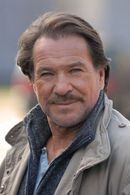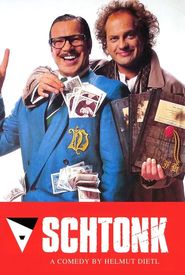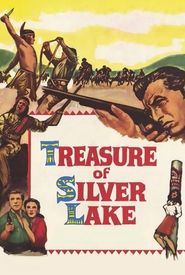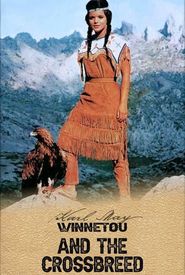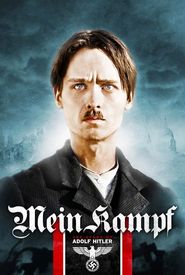Götz George, born in Berlin in 1938, is the son of the famous actor Heinrich George and his wife, the actress Berta Drews. After first appearances on the stage of Berlin's Hebbel Theater during his childhood, Götz George was trained as an actor by the recognized teacher Else Bongers.
At the age of 15, Götz George started his career as a movie actor. In 1960 he received his first major award for his appearance in the film 'Jacqueline', followed by the German Critics Award in 1961. A year later he received the public "Bambi"-award as the most popular German actor.
Between 1959 and 1969 Götz George appeared in 26 cinema features, among them 'Kirmes', 'Das Mädchen und der Staatsanwalt', 'Liebe will gelernt sein', 'Sie nannten ihn Gringo', and 'Ostwind'. George's next movie production was 'Aus einem Deutschen Leben', directed by Theodor Kotulla, in 1977, where he gave a highly praised performance as the KZ commander Rudolf Höss.
The movies 'Abwärts' in 1984 and 'Zahn um Zahn' in 1985 were both successful at the box office and among critics. In 1985, George received the German Cinema Award and the Gold Ribbon as best German movie actor.
After starring in 'Zabou' in 1987 and the action thriller 'Die Katze' in 1988, Götz George appeared in 'Der Bruch', the first East-West-German co-production for cinema, directed by Frank Beyer in 1988. The location of his next film was Argentina, where he starred in the movie 'Blauäugig', produced in 1989 under the direction of Reinhard Hauff.
In 1991 George played a lead role in Helmut Dietl's comedy 'Schtonk', a big success in Germany among audience and critics, and official German nomination for the Oscar. For this performance, George again received the Gold Ribbon as best actor.
Perhaps his most prominent achievement, however, was the role of the serial killer Fritz Haarmann in Romuald Karmakar's movie 'Der Totmacher', for which he received the Coppa Volpi, the actor's award of the Venice Film Festival in 1995 and, once more, the Gold Ribbon in 1996.
In the same year he again appeared in another highly successful film by Helmut Dietl, 'Rossini'. In early 1997, George starred in the movie 'Das Trio', directed by Hermine Huntgeburth, and during the last two months he was filming the thriller 'Solo für Klarinette', directed by Nico Hofmann.
In summer of 1998, Götz George starred as Josef Mengele in Roland Suso Richter's film 'After the Truth / Nichts als die Wahrheit'. In 2000 he played the advertiser Eddie Kaminski in the feature film 'Commercial Man', directed by Lars Kraume, he was strange bird Heinrich in 'Gott ist tot' (2001, written and directed by Kadir Sözen) and designer Jost in 'Maria an Callas' (2004/5, written and directed by Petra K. Wagner).
During the seventies, Götz George worked for television and theater. Among others, notable stage appearances were in 'Troilos und Cressida' (as Troilus),in 'Martin Luther und Thomas Münzer' (as Luther),in 'Endstation Sehnsucht' ('A Streetcar Named Desire' - as Kowalski),in 'Dantons Tod' (as Danton) and in 'Platonow' (as Platonow).
Though Götz George has been a popular German movie actor for four decades, he gained his perhaps most unique popularity for the impersonation of the police detective Horst Schimanski in the 'Tatort' TV-series from 1981 to 1991.
